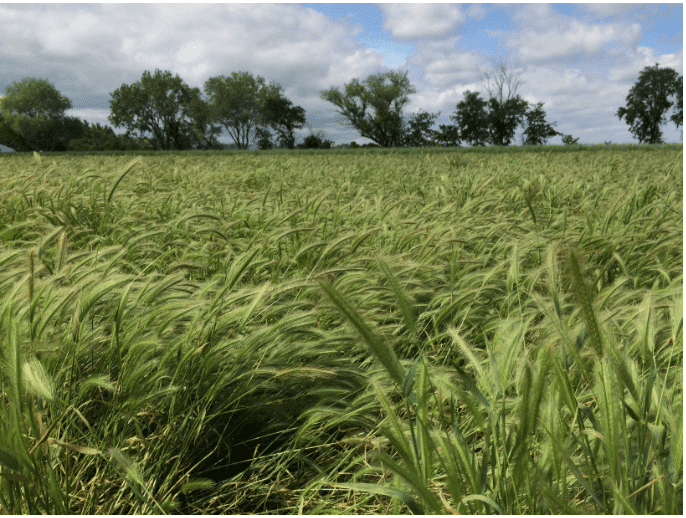
Alkali Barley
Hordeum depressum
This is an annual grass that grows between 1 to 2 feet tall. It is used for habitat restoration and as a cover crop. This grass prefers full sun and is typically found in grasslands, prairies, and di...
- Growing Region: Pacific Northwest, Intermountain West, California
- Blooms:
- Life Form: Grass
- Application Type: Land Reclamation, Habitat Restoration
- Height: 1-2 ft
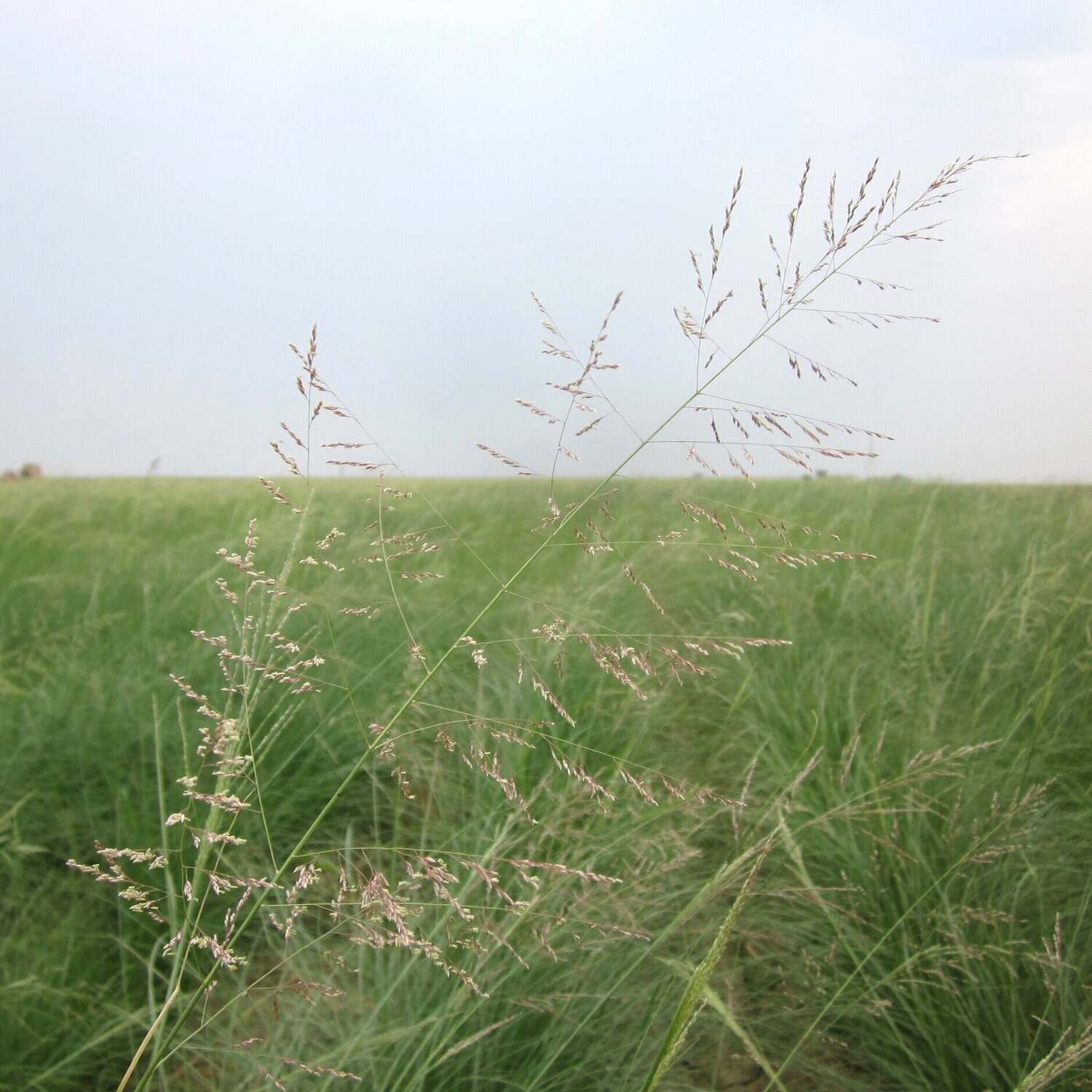
Alkali sacaton
Sporobolus airoides
Warm season, perennial bunchgrass with an extensive fibrous root system. Performs best on deep, moist, fine textured soils but will persist on coarser soils on dry sites. Tolerant of a wide range of s...
- Growing Region: Intermountain West, Southwest, Pacific Northwest, California
- Blooms:
- Life Form: Grass
- Application Type: Land Reclamation, Habitat Restoration
- Height: 1-4 ft
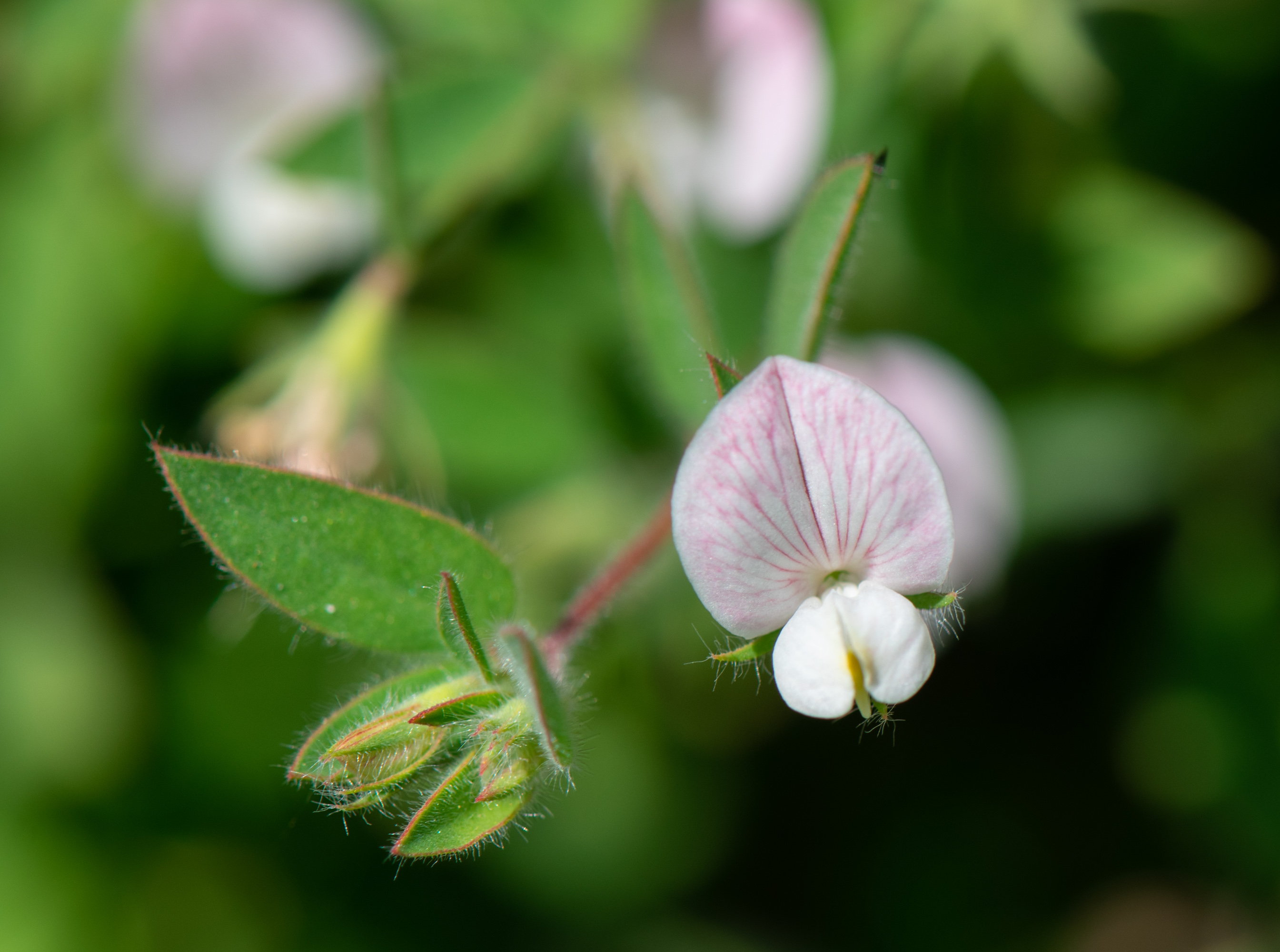
American Birdsfoot Trefoil
Acmispon americanus
Acmispon amiericanus is a native annual herb in the Fabaceae (Legume) family that grows in Northern, Southern and Central California in most habitats except desert. It tends to grow in streambanks and...
- Growing Region: California, Southwest
- Blooms:
- Life Form: Forb
- Application Type: Land Reclamation, Habitat Restoration
- Height: 0-1 ft
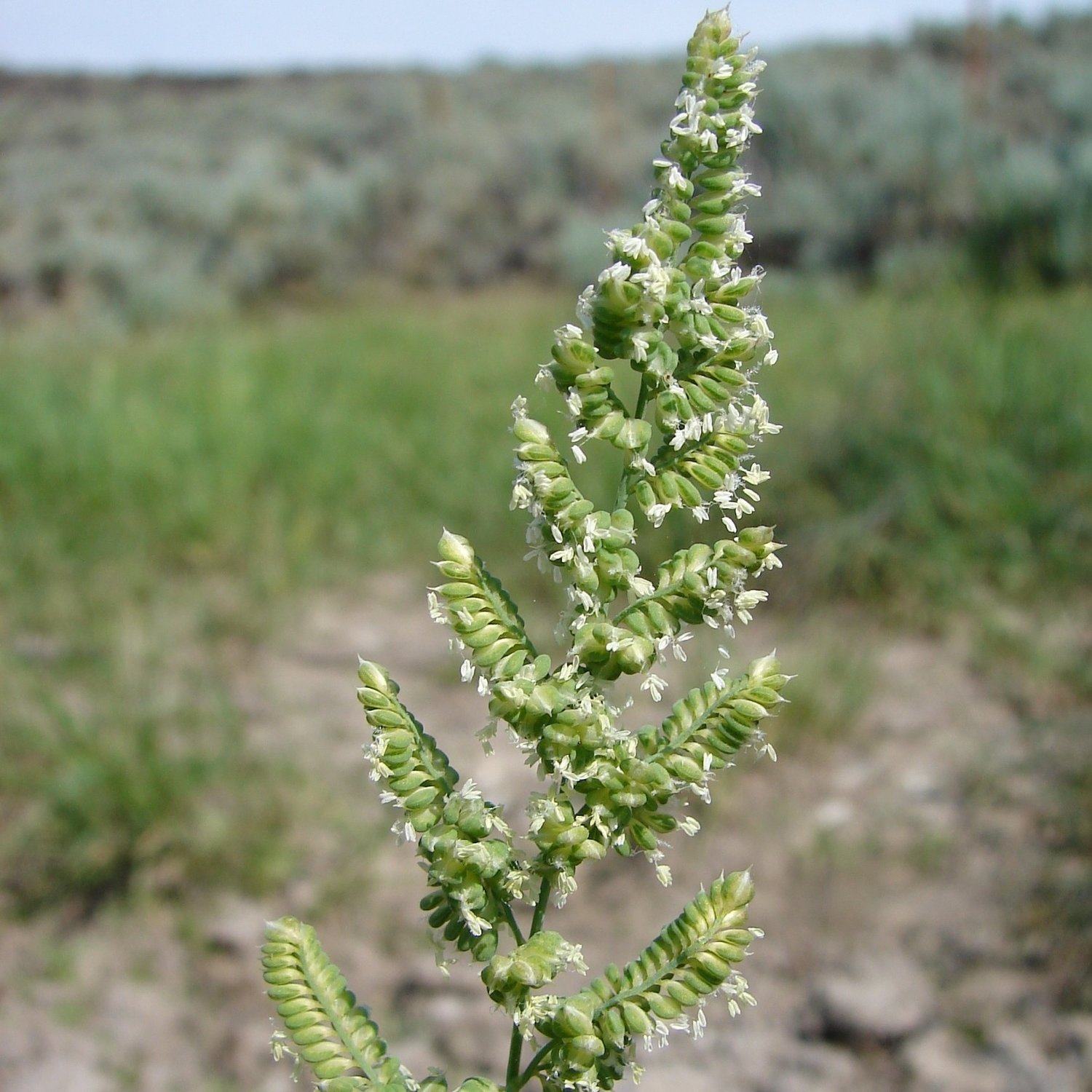
American sloughgrass
Beckmannia syzigachne
Cool season, robust annual or short-lived perennial that may develop short rhizomes. Commonly occurs on wet sites such as ponds, swamps, ditch banks, shallow marshes and sloughs. Prefers clay soils; t...
- Growing Region: Midwest, Intermountain West, Pacific Northwest
- Blooms:
- Life Form: Grass
- Application Type: Land Reclamation, Erosion Control, Habitat Restoration, Forage and Pasture
- Height: 1-3 ft
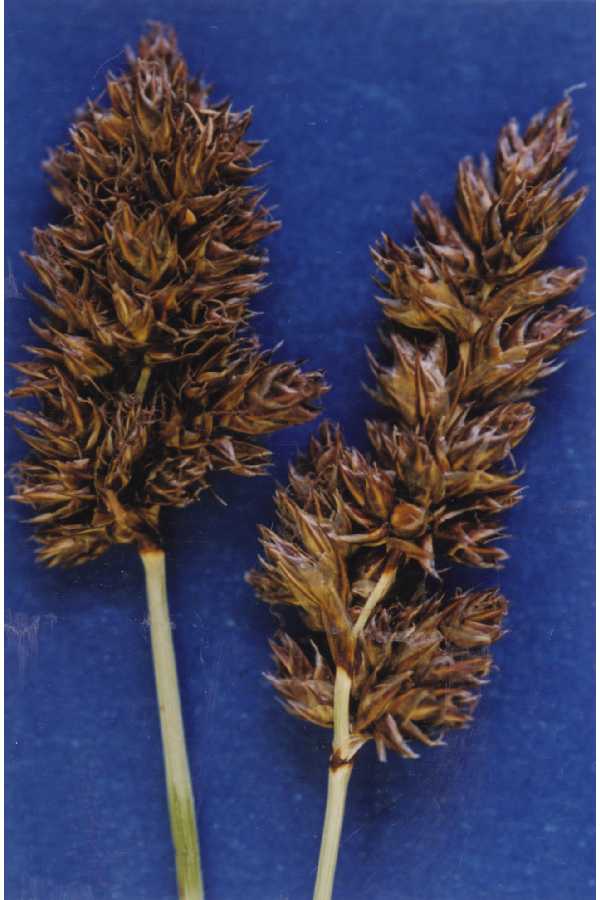
Analogue sedge
Carex simulata
Cool season, rhizomatous, native perennial grasslike common in many western states. Occurs in saturated soils of wet meadows and springs, from foothills to moderate elevations up to 9,000 ft. Often fo...
- Growing Region: Intermountain West, Pacific Northwest
- Blooms:
- Life Form: Grass
- Application Type: Land Reclamation, Erosion Control, Habitat Restoration
- Height: 1-3 ft
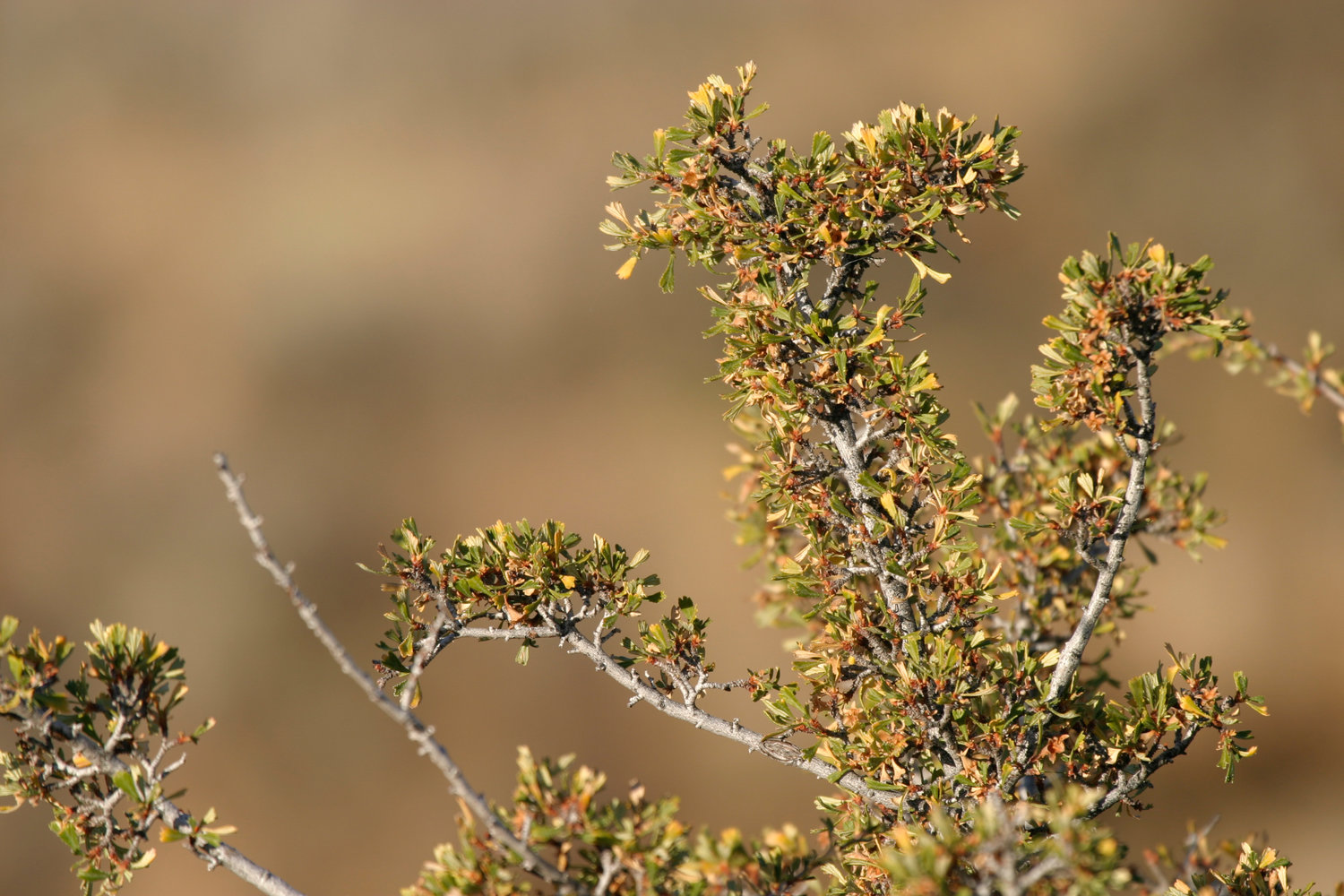
Antelope bitterbrush
Purshia tridentata
Moderate to deeply taprooted evergreen shrub 2-10 ft. tall with small yellowish flowers, blooming April to August. Adapted to a wide variety of well-drained soils, slightly acidic to basic, often deep...
- Growing Region: Intermountain West, Southwest, Pacific Northwest, California
- Blooms: Spring
- Life Form: Shrub
- Application Type: Land Reclamation, Habitat Restoration
- Height: 4+ ft
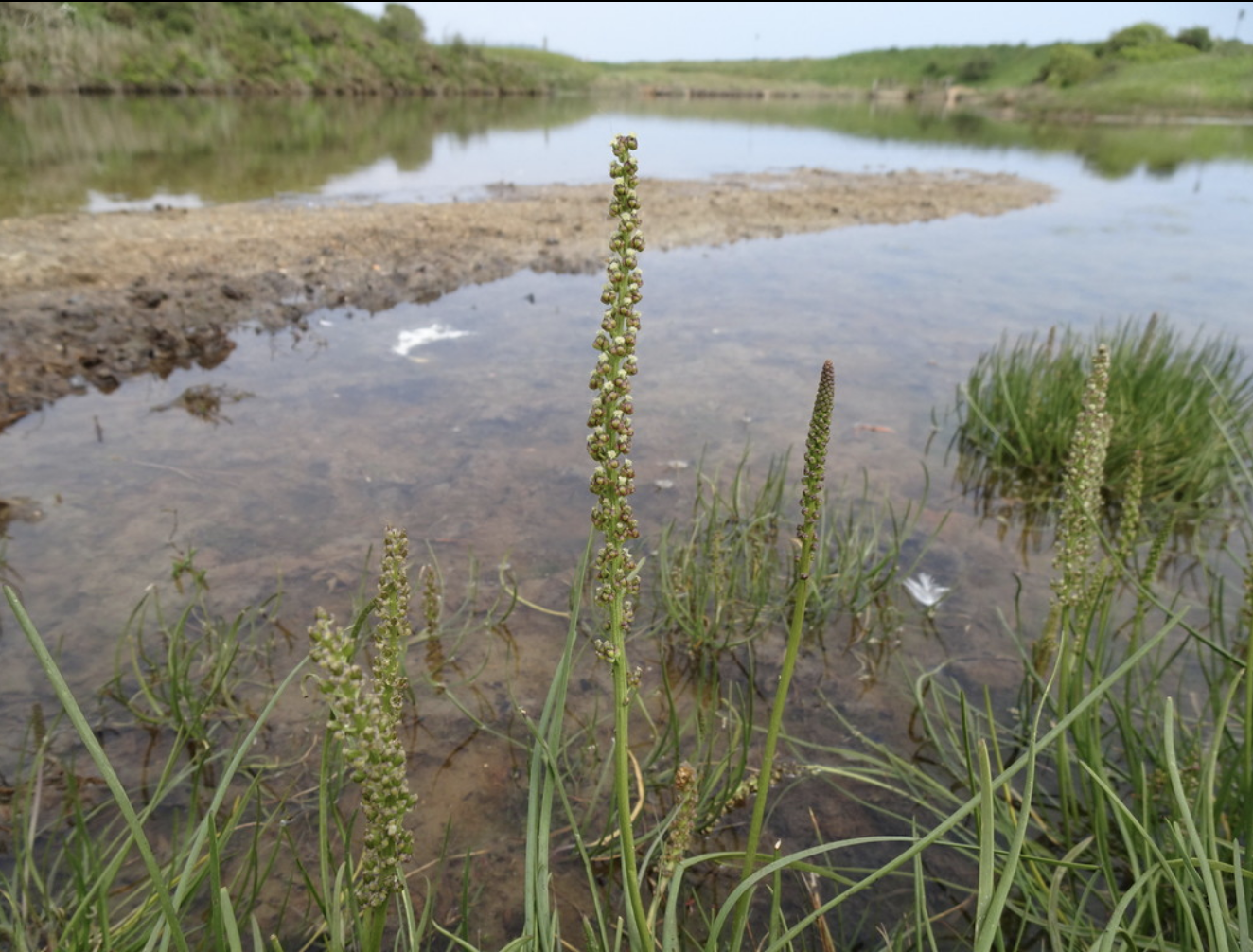
Arrowgrass
Triglochin maritima
Cool season, perennial grasslike species that occurs in saline and alkaline marshes, peat lands, plains and basins at low to middle elevations. Frequently grows with sedges and grasses but is often ov...
- Growing Region: Pacific Northwest, California, Intermountain West
- Blooms:
- Life Form: Grasslike
- Application Type: Land Reclamation, Habitat Restoration
- Height: 1-2 ft
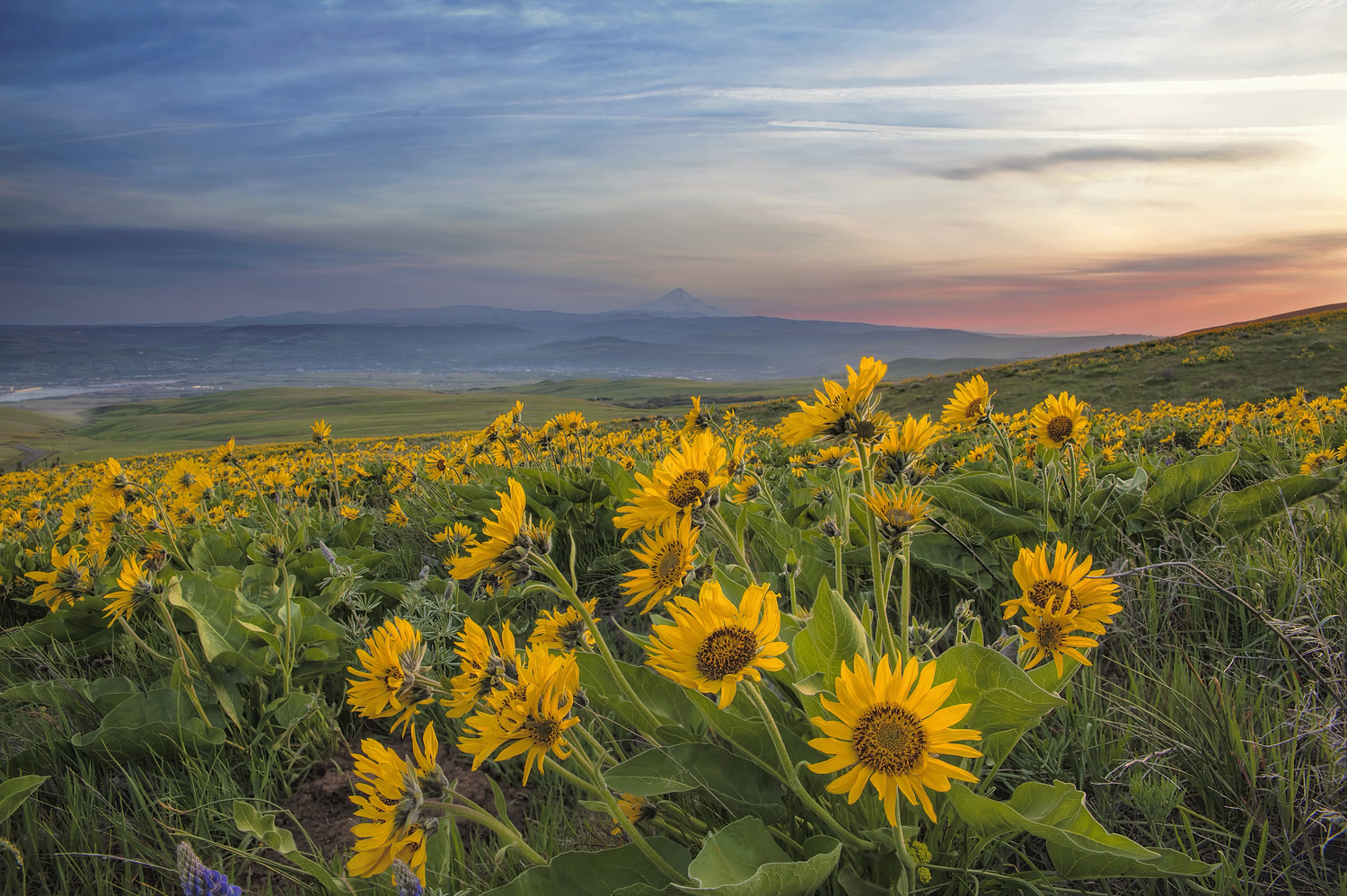
Arrowleaf balsamroot
Balsamorhiza sagittata
Drought tolerant, long-lived perennial native with yellow sunflower-like flowers, blooming April to July. Deep, thick taproot tolerant of fire, grazing, trampling and drought; seedlings slow to establ...
- Growing Region: Pacific Northwest, Intermountain West, California
- Blooms: Spring, Summer
- Life Form: Forb
- Application Type: Land Reclamation, Habitat Restoration
- Height: 1-3 ft
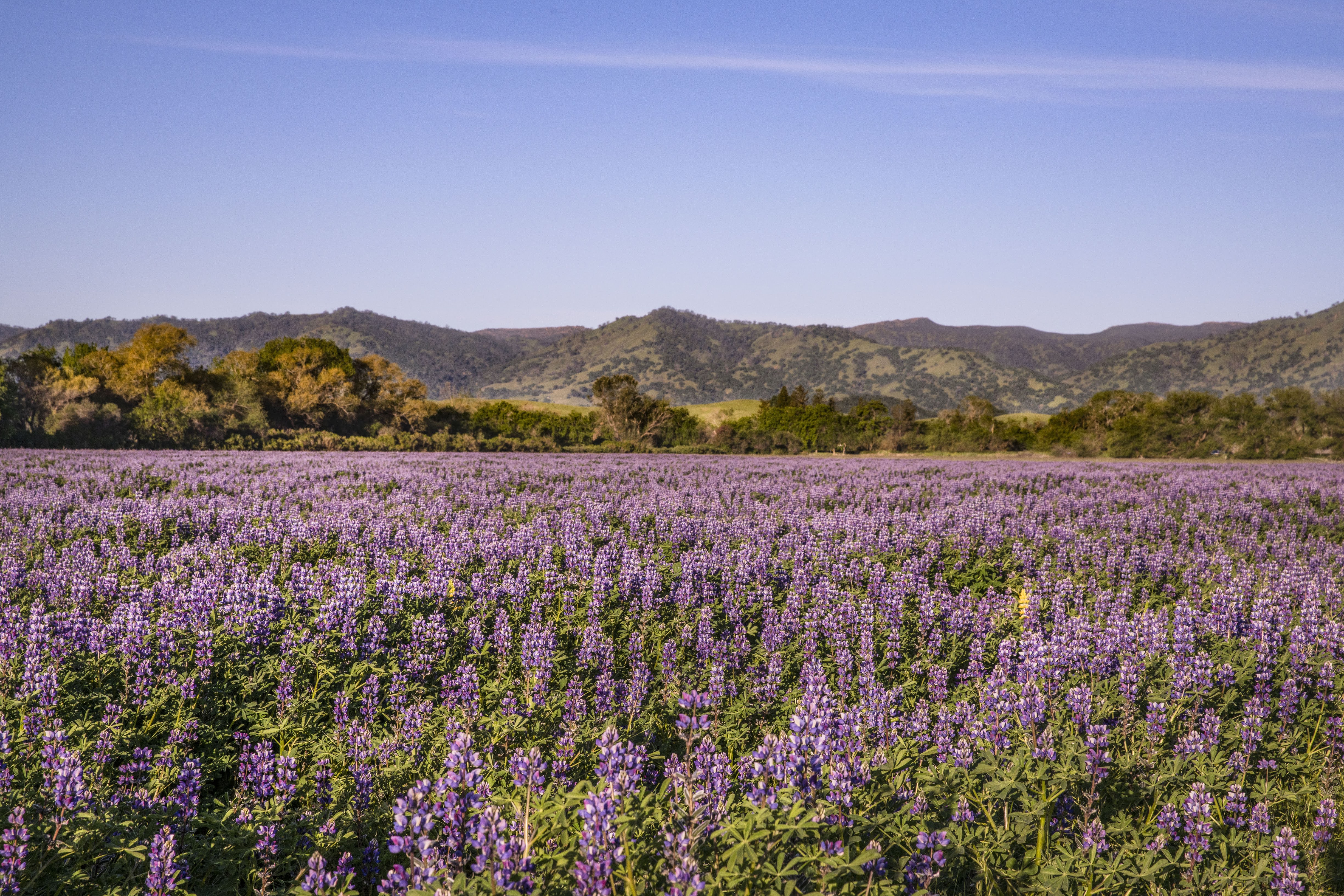
Arroyo lupine
Lupinus succulentus
Arroyo Lupine (Lupinus succulentus) is a showy annual wildflower native to California’s valleys and coastal areas. Growing 2–4 feet tall, it bears eye-catching spires of purple-blue and white pea-shap...
- Growing Region: California, Southwest
- Blooms: Spring
- Life Form: Forb, Legume
- Application Type: Land Reclamation, Habitat Restoration, Pollinator Habitat, Commercial Beautification
- Height: 1-4 ft
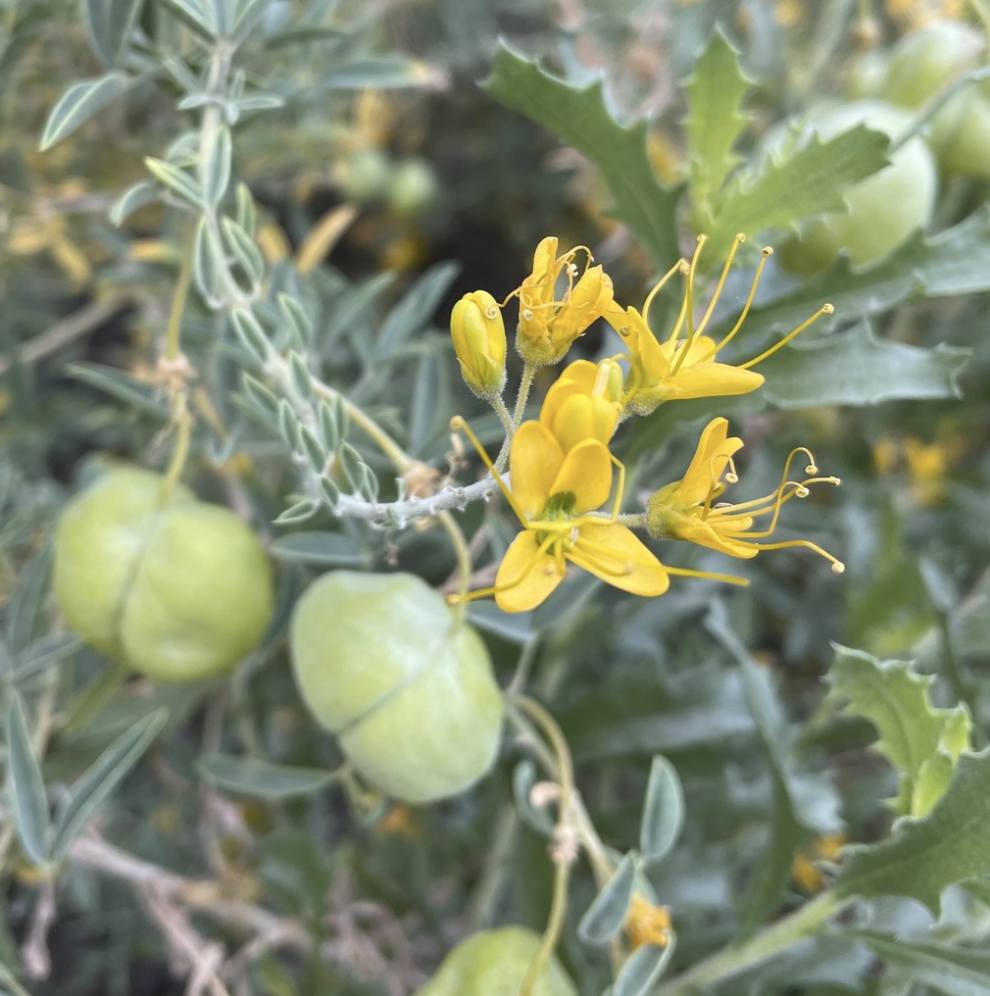
Bladderpod
Peritoma arborea
Formerly Cleome isomeris and Isomeris arborea. Rounded evergreen shrub to subshrub 4-6 ft. tall with attractive yellow flowers, blooming primarily January to June. Odd-smelling sulfurous leaves. Toler...
- Growing Region: Intermountain West, California
- Blooms: Spring, Summer
- Life Form: Shrub
- Application Type: Land Reclamation, Habitat Restoration, Pollinator Habitat
- Height: 4+ ft
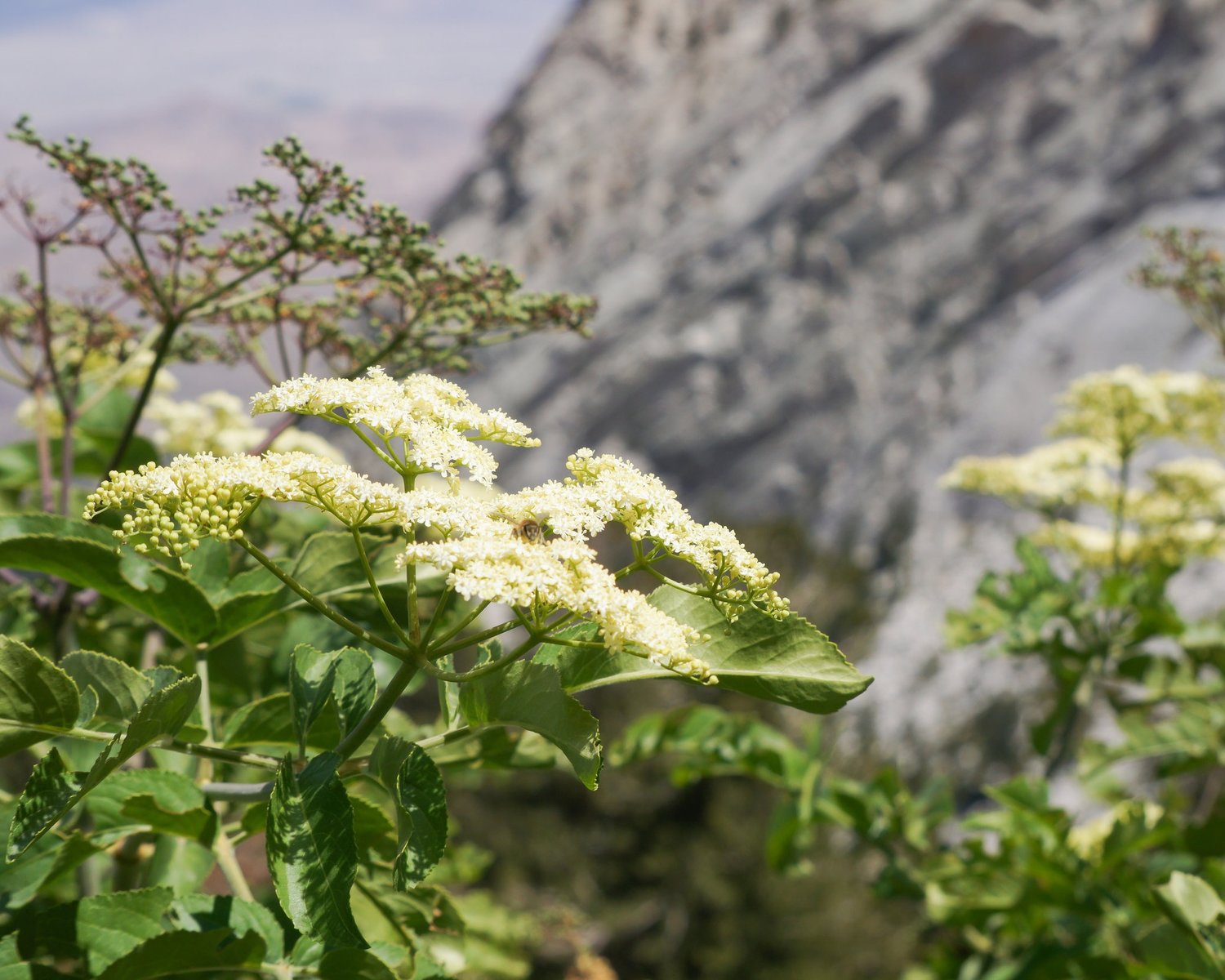
Blue elderberry
Sambucus nigra ssp. caerulea
Formerly Sambucus caerulea. Deciduous short-lived aromatic shrub or small tree up to 20 ft. tall or more with purple-black berries and white to cream flowers, blooming March to September. Adapted to a...
- Growing Region: Pacific Northwest, California
- Blooms: Spring, Summer
- Life Form: Shrub
- Application Type: Land Reclamation, Habitat Restoration, Pollinator Habitat
- Height: 1-4 ft
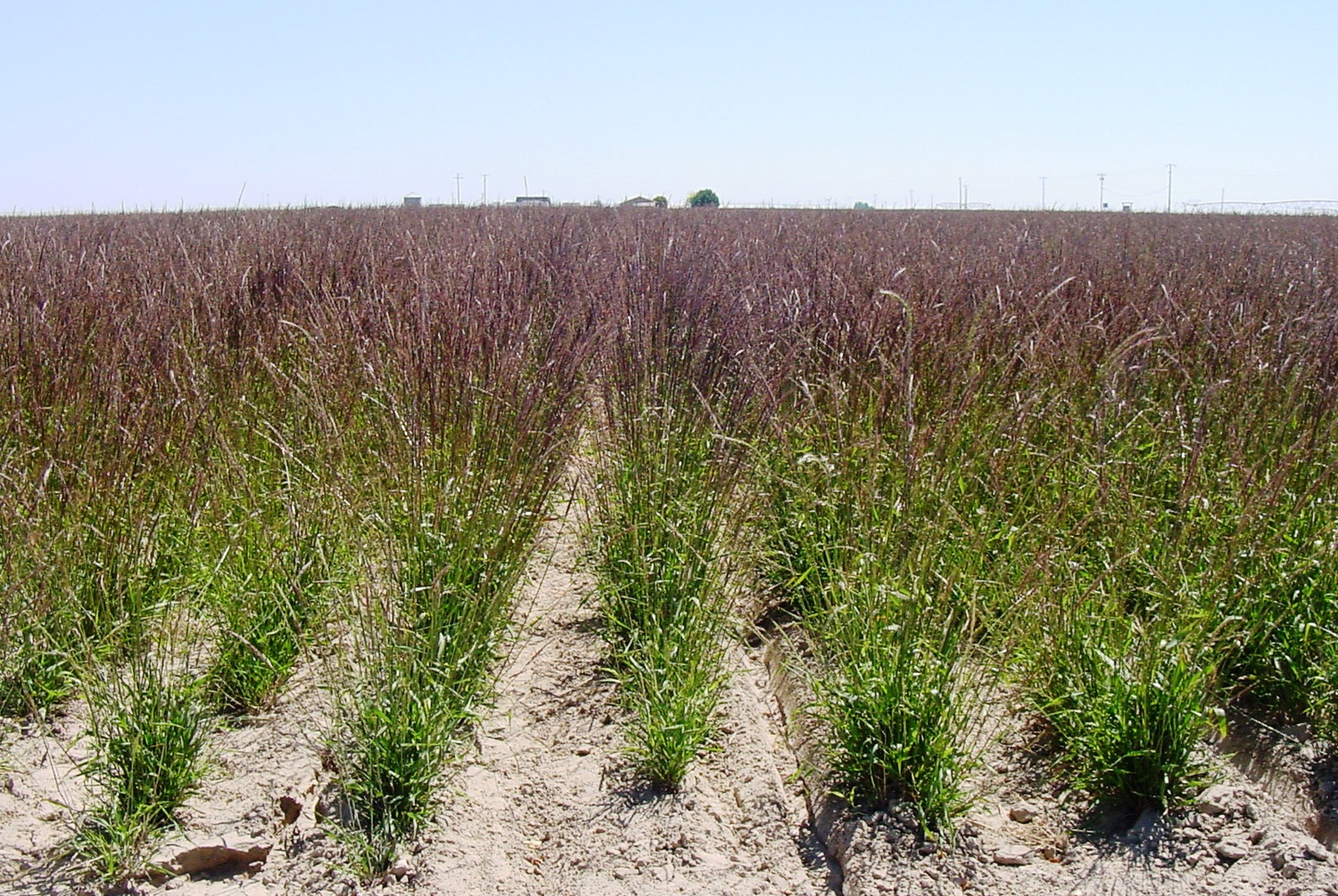
Blue wildrye
Elymus glaucus
Cool season tufted perennial bunchgrass which is highly desirable for use in erosion control seedings. Commonly found thriving in moist meadows, woodlands, or forests at mid elevations throughout its...
- Growing Region: Intermountain West, California, Pacific Northwest
- Blooms:
- Life Form: Grass
- Application Type: Land Reclamation, Erosion Control, Commercial Beautification, Habitat Restoration
- Height: 1-3 ft
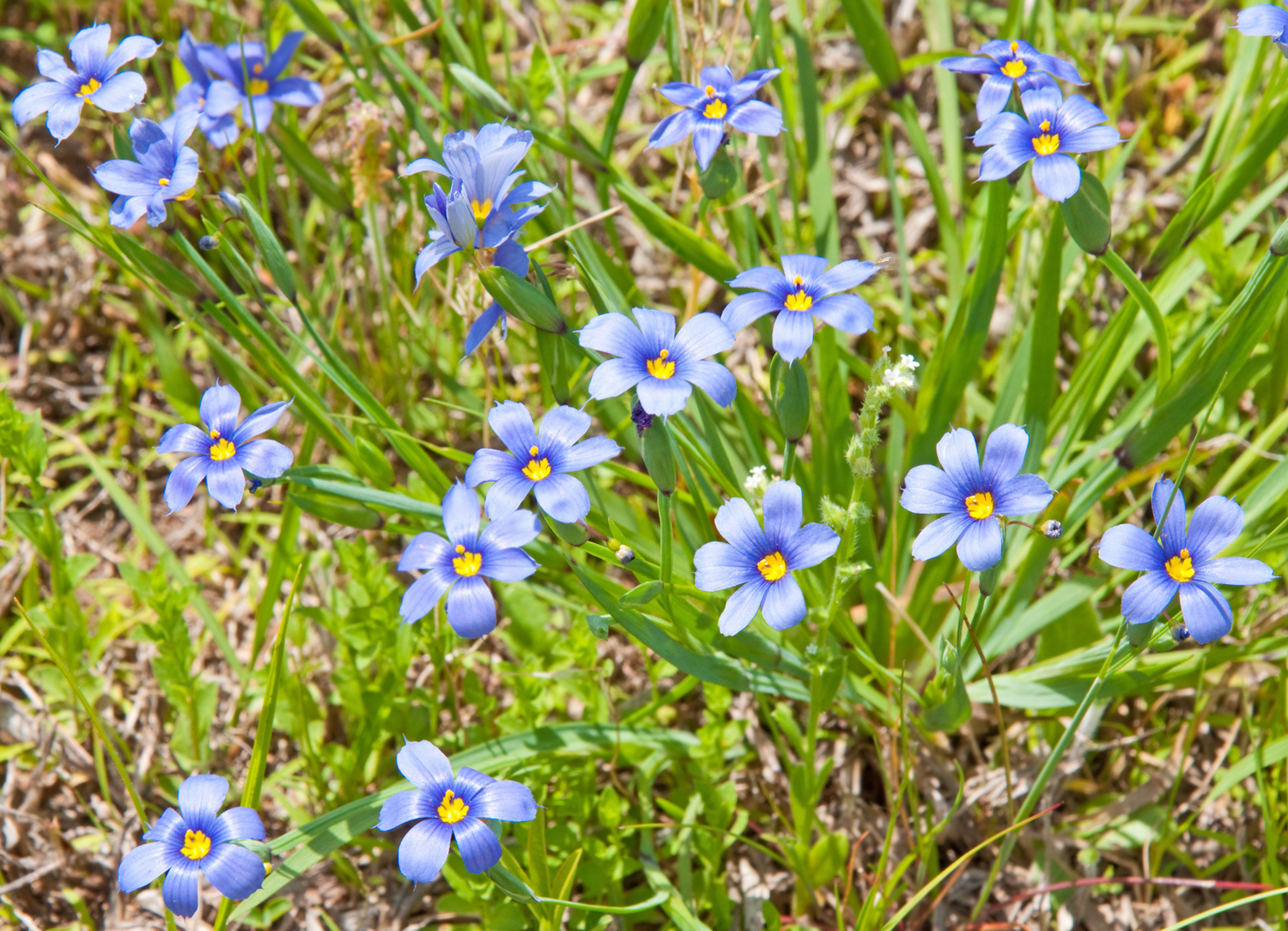
Blue-eyed grass
Sisyrinchium bellum
Short native perennial with dark blue flowers and a yellow eye, blooming March to July. Rhizomatous, preferring sandy to clay soils in moist grassy meadows and open woodlands; up to 8,000 ft. elevatio...
- Growing Region: California, Pacific Northwest
- Blooms: Spring
- Life Form: Forb
- Application Type: Land Reclamation, Pollinator Habitat, Habitat Restoration
- Height: 1-2 ft
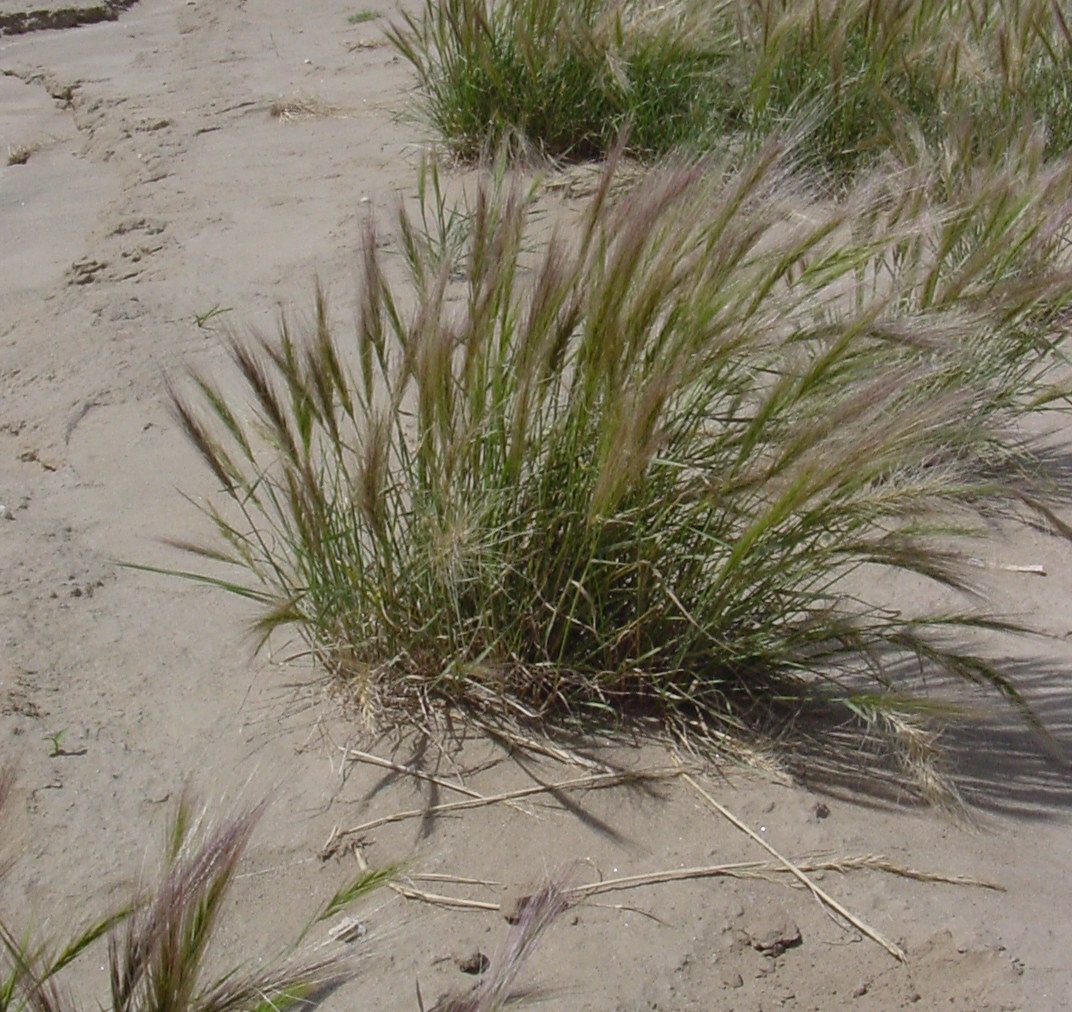
Bottlebrush squirreltail
Elymus elymoides
Formerly Sitanion hystrix. Cool season, short-lived, perennial native bunchgrass found on both deep and shallow soils. Very drought tolerant. Easy to establish and often behaves as a pioneer species o...
- Growing Region: Intermountain West, Southwest, California
- Blooms:
- Life Form: Grass
- Application Type: Land Reclamation, Habitat Restoration
- Height: 1-2 ft
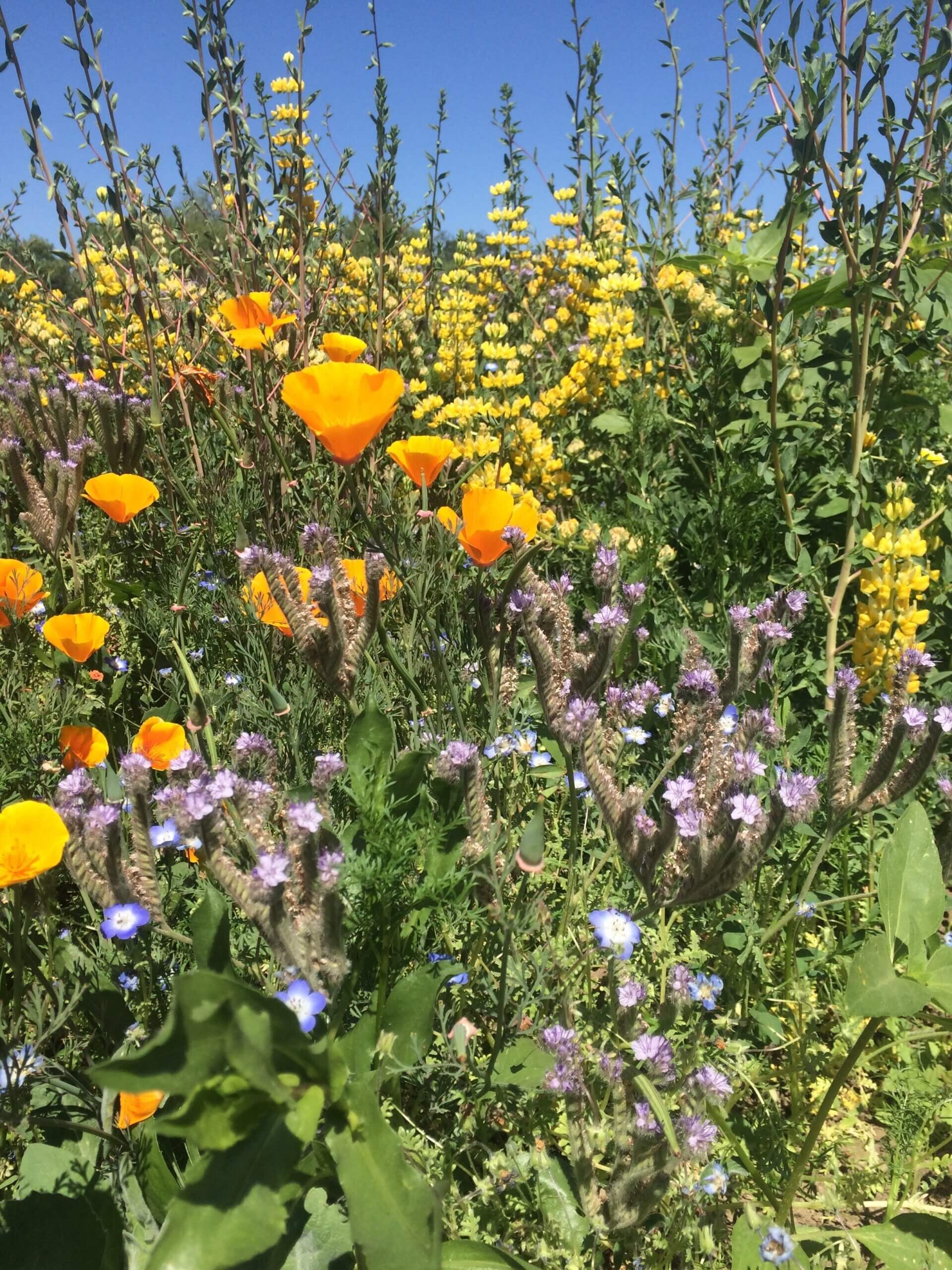
CA Central Valley Pollinator Mix (Xerces)
Mix
The annual and perennial native wildflowers and grasses in this native seed mix provide high quality foraging and nesting resources for a diversity of pollinators. It is appropriate for habitat resto...
- Growing Region: California
- Blooms: Fall, Spring, Summer, Winter
- Life Form: Forb, Grass
- Application Type: Land Reclamation, Pollinator Habitat, Habitat Restoration
- Height: 1-3 ft